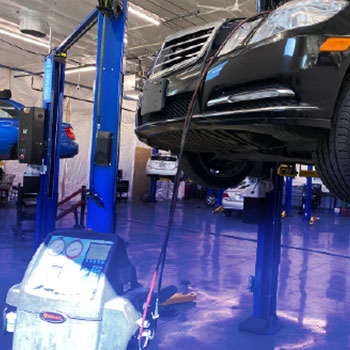All Categories
Featured
EV batteries are big, complex, and contain important products, making appropriate disposal and recycling necessary. The great news is that several repair work stores, in partnership with recycling programs, currently supply electrical vehicle battery recycling solutions.
![]()
Furthermore, the growing variety of electric automobiles when driving has created a pressing demand for lasting services to handle battery waste. According to industry estimates, countless EV batteries will call for recycling in the coming years, making repair service shops a critical part of this community.
Manufacturer Partnerships: Brands like Tesla, Ford, and GM have actually established recycling initiatives, and accredited service center affiliated with these suppliers frequently assist in battery recycling. Third-Party Recyclers: Independent fixing shops sometimes companion with companies focusing on EV battery recycling, such as Redwood Products or Li-Cycle, which concentrate on extracting and recycling beneficial products from batteries. 3. How the Process Functions. When an EV battery gets to completion of its lifecycle, service center take several actions to guarantee its appropriate recycling:
Analysis: Specialists evaluate whether the battery can be repurposed for various other usages, such as power storage systems. Disassembly: The battery is very carefully taken down to divide recyclable products. Reusing Transfer: The taken apart components are sent to specialized facilities where steels and other materials are recuperated for reuse. This procedure lessens waste and maximizes the worth drawn out from utilized batteries, supporting a sustainable EV environment.
![]()
Government guidelines and incentives are additionally driving the development of battery recycling infrastructure. In areas like the EU and California, strict standards on battery disposal make sure that repair service shops and suppliers take obligation for recycling efforts.
Verdict. Yes, service center using electric lorry battery recycling are ending up being significantly typical. These services play an essential role in creating a lasting EV sector by making sure that utilized batteries are recycled sensibly.
![]()
As even more service center welcome these practices, they not just contribute to environmental defense yet additionally enhance the lifecycle of electrical cars. For EV owners, looking for repair work shops with recycling solutions is a meaningful way to sustain sustainability while keeping their cars.
The future of EV battery recycling is promising, with repair service governments, shops, and makers working with each other to address the difficulties and build a greener tomorrow.
- Why Recycle EV Batteries? EV batteries are composed of materials like lithium, nickel, cobalt, and manganese-- resources that are finite and energy-intensive to essence. Recycling these batteries avoids unsafe chemicals from leaking into the environment and lowers the requirement for mining new raw products. By recovering these components, recycling contributes to the round economic situation and reduces the carbon footprint of EV production.

Furthermore, the growing variety of electric automobiles when driving has created a pressing demand for lasting services to handle battery waste. According to industry estimates, countless EV batteries will call for recycling in the coming years, making repair service shops a critical part of this community.
- Repair Work Shops and Battery Recycling Programs. Lots of forward-thinking service center are tipping up to use EV battery recycling services. These stores typically operate in partnership with producers, specialized recycling centers, or government-backed programs to make sure batteries are taken care of securely and successfully.
Manufacturer Partnerships: Brands like Tesla, Ford, and GM have actually established recycling initiatives, and accredited service center affiliated with these suppliers frequently assist in battery recycling. Third-Party Recyclers: Independent fixing shops sometimes companion with companies focusing on EV battery recycling, such as Redwood Products or Li-Cycle, which concentrate on extracting and recycling beneficial products from batteries. 3. How the Process Functions. When an EV battery gets to completion of its lifecycle, service center take several actions to guarantee its appropriate recycling:
Analysis: Specialists evaluate whether the battery can be repurposed for various other usages, such as power storage systems. Disassembly: The battery is very carefully taken down to divide recyclable products. Reusing Transfer: The taken apart components are sent to specialized facilities where steels and other materials are recuperated for reuse. This procedure lessens waste and maximizes the worth drawn out from utilized batteries, supporting a sustainable EV environment.
- The Function of Repair Work Shops in Encouraging Sustainability. Repair shops that provide battery recycling not just help in reducing environmental effect yet also strengthen client trust. EV proprietors are more most likely to select organizations that demonstrate environmental duty. Some service center go an action additionally by supplying rewards, such as discount rates on new batteries or solutions, to clients that reuse their old ones.

- Difficulties and Future Outlook. While battery recycling is expanding, obstacles continue to be. Not all repair service stores are equipped to manage EV batteries because of their dimension, intricacy, and security demands. Nevertheless, as innovation breakthroughs and demand for recycling rises, even more repair stores are most likely to adopt these solutions.
Government guidelines and incentives are additionally driving the development of battery recycling infrastructure. In areas like the EU and California, strict standards on battery disposal make sure that repair service shops and suppliers take obligation for recycling efforts.
Verdict. Yes, service center using electric lorry battery recycling are ending up being significantly typical. These services play an essential role in creating a lasting EV sector by making sure that utilized batteries are recycled sensibly.

As even more service center welcome these practices, they not just contribute to environmental defense yet additionally enhance the lifecycle of electrical cars. For EV owners, looking for repair work shops with recycling solutions is a meaningful way to sustain sustainability while keeping their cars.
The future of EV battery recycling is promising, with repair service governments, shops, and makers working with each other to address the difficulties and build a greener tomorrow.
Latest Posts
Reputable Industrial Roof Covering Services by Weathercraft
Published May 25, 25
1 min read
Uncover the Best Auto Repair Coupons in Montclare, Chicago
Published May 23, 25
1 min read
How to Know When Your Car Needs Skilled Car Repair at Montclare Auto Repair
Published May 23, 25
1 min read